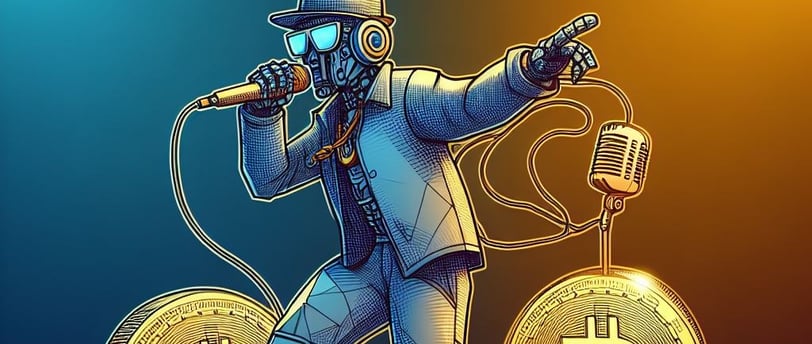NFT Revolution in Music: A New Paradigm for Artists and Fans
Explore how Non-Fungible Tokens (NFTs) are reshaping the music industry, offering artists innovative ways to monetize and control their work, while providing fans with unique collectibles and experiences. Discover the rise of music NFTs, their impact on traditional distribution models, and the challenges and prospects they bring to artists and fans in the digital age. Join us in understanding this transformative shift in music creation, distribution, and enjoyment.


The music industry has always been a dynamic and ever-evolving space, constantly adapting to the changing needs and preferences of artists and fans alike. In recent years, the emergence of Non-Fungible Tokens (NFTs) has introduced a revolutionary concept that promises to transform the way artists monetize their work and fans engage with their favorite musicians.
The Rise of NFTs in the Music Industry
NFTs, which are unique digital assets that can represent ownership or proof of authenticity, have gained significant traction in the art world. However, their potential extends far beyond visual art, and the music industry is starting to take notice.
With NFTs, artists can tokenize their music, allowing them to sell and distribute their work directly to fans without the need for intermediaries. This newfound control over their intellectual property offers artists greater autonomy and the opportunity to monetize their creations in innovative ways.
Empowering Artists with Greater Control
Traditionally, artists have relied on record labels and streaming platforms to distribute and monetize their music. While these intermediaries have played a crucial role in the industry, they often retain a significant portion of the revenue generated. This leaves artists with limited control over their own work and a smaller share of the profits.
NFTs provide a solution to this problem by enabling artists to sell their music directly to fans, cutting out the middlemen and retaining a larger portion of the earnings. This newfound control allows artists to set their own pricing, release exclusive content, and experiment with creative ways to engage with their audience.
Fair Compensation for Artists
One of the biggest challenges artists face in the digital age is fair compensation for their work. Streaming platforms, while convenient for fans, often pay artists a fraction of a cent per stream, making it difficult for them to earn a sustainable income.
NFTs offer a potential solution by allowing artists to sell their music as unique collectibles. Fans can purchase these tokens, which represent ownership of a specific song or album, and in return, the artist receives a direct payment. This direct-to-fan model ensures that artists are fairly compensated for their work and helps to establish a more sustainable income stream.
Enhancing Fan Engagement
NFTs not only provide artists with new monetization methods but also offer fans a unique and immersive experience. Owning an NFT allows fans to have a tangible connection to their favorite musicians and be a part of their journey.
Artists can leverage NFTs to offer exclusive perks and experiences to their token holders. This can include access to backstage passes, meet-and-greets, early access to new releases, or even the opportunity to collaborate on a song. By creating a sense of exclusivity and rewarding their most dedicated fans, artists can foster a deeper and more meaningful connection with their audience.
Challenges and Future Prospects
While the potential of music NFTs is immense, there are still challenges that need to be addressed. One of the main concerns is the environmental impact of blockchain technology, which powers NFTs. The energy consumption associated with blockchain transactions has raised concerns about its sustainability.
However, efforts are being made to develop more eco-friendly solutions, such as transitioning to more energy-efficient blockchain networks. Additionally, there is a need for clearer regulations and standards to protect both artists and fans in the NFT space.
Looking ahead, the future prospects for music NFTs are promising. As the technology matures and becomes more accessible, we can expect to see a wider adoption of NFTs in the music industry. This could lead to a more decentralized and democratized ecosystem, where artists have greater control over their work and fans have more direct access to their favorite music.
Conclusion
NFTs have the potential to revolutionize the music industry by empowering artists with greater control over their work and offering fans unique collectibles and experiences. The rise of music NFTs opens up new possibilities for monetization and fan engagement, challenging the traditional distribution models and reshaping the industry as a whole.
While there are challenges to overcome, the future prospects for music NFTs are bright. As more artists and fans embrace this new paradigm, we can expect to witness a transformative shift in the way music is created, distributed, and enjoyed.
